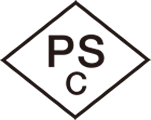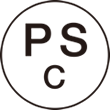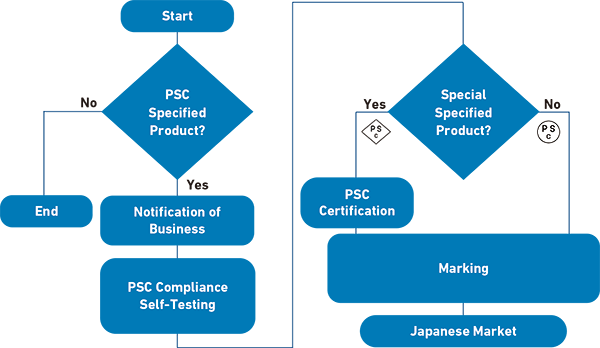The PSC Law and its regulations apply to nearly all consumer products sold in Japan. Consumer products are subject to the product accident provisions and reporting obligations along with relevant penalties and fines for failing to meet the law’s requirements.
Products of particular concern have additional requirements under the PSC Law.
Product categories that pose the highest risk to consumer safety are termed “Special Specified Products” and require third-party assessment by a METI-Registered Conformity Assessment Body (Registered CAB).

Products that pose a moderate risk to consumers are termed “Specified Products” and are subject to a Self-Declaration of Conformity (SDoC) scheme. Although exempt from third-party conformity assessment, “Specified Products” must still be tested for conformity, and a record of the test results must be kept by the manufacturer and/or importer.

Only products designated as Special Specified Products or Specified Products are obligated to display the PSC mark. JQA’s certification scope is limited to portable lasers.
| Special Specified Products | Specified Products | |
|---|---|---|
| Mark |  |
 |
| In-scope Products |
|
|
The chart below shows a general overview of the regulatory process for products subject to PSC marking in Japan.

For major accidents involving consumer products, such as fire or fatal injury, the importer or manufacturer of the product involved must submit an accident report to the Japanese government. Also, businesses selling, repairing, or installing consumer products must try to notify importers and manufacturers as soon as they become aware of a major accident.
A system of labeling and safety inspections for long-term use consumer products was established to prevent accidents arising from product wear-and-tear over extended periods of time. In the Long-term Use Consumer Product Safety Inspection System, manufacturers and importers of Specified Maintenance Products*1 must label the product with: the standard period of use*2, recommended frequency of inspections, and contact information to easily request inspections.
For electrical products such as fans, air conditioners, ventilation fans, washing machines (dryers are excluded), and cathode-ray tube (CRT) televisions, manufacturers and importers are required to display warnings on the product regarding product deterioration over time and the standard period of use in relation to product design.